Related Research Articles

Kasinadhuni Viswanath, popularly known as "Kalatapasvi", was an Indian film director, screenwriter, lyricist and actor who predominantly worked in Telugu cinema. One of the greatest auteurs of Indian cinema, he received international recognition for his works, and is known for blending parallel cinema with mainstream cinema. He was honuored with the "Prize of the Public" at the "Besançon Film Festival of France" in 1981. In 1992, he received the Andhra Pradesh state Raghupathi Venkaiah Award, and the civilian honour Padma Shri for his contribution to the field of arts. In 2017, he was conferred with the Dadasaheb Phalke Award, the highest award in Indian cinema.

Malayalam cinema is the segment of Indian cinema dedicated to the production of motion pictures in the Malayalam language, which is widely spoken in the state of Kerala, India. In 1982, Elippathayam won the Sutherland Trophy at the London Film Festival, and Most Original Imaginative Film of 1982 by the British Film Institute. The film Marana Simhasanam has won the prestigious Caméra d'Or at the 1999 Cannes Film Festival.
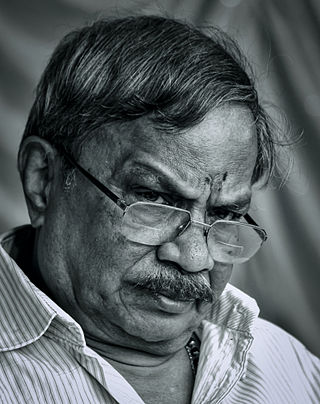
Madath Thekkepaattu Vasudevan Nair, popularly known as M.T., is an Indian author, screenplay writer and film director. He is a prolific and versatile writer in modern Malayalam literature, and is one of the masters of post-Independence Indian literature. At the age of 20, as a chemistry undergraduate, he won the prize for the best short story in Malayalam at World Short Story Competition conducted by The New York Herald Tribune. His first major novel Naalukettu, written at the age of 23, won the Kerala Sahitya Akademi Award in 1958. His other novels include Manju (Mist), Kaalam (Time), Asuravithu and Randamoozham. The deep emotional experiences of his early days have gone into the making of MT's novels. Most of his works are oriented towards the basic Malayalam family structure and culture and many of them were path-breaking in the history of Malayalam literature. His three seminal novels on life in the matriarchal family in Kerala are Naalukettu, Asuravithu, and Kaalam. Randamoozham, which retells the story of the Mahabharatha from the point of view of Bhimasena, is widely credited as his masterpiece.

The National Film Development Corporation of India (NFDC) based in Mumbai is the central agency established in 1975, to encourage high quality Indian cinema. It functions in areas of film financing, production and distribution and under the Ministry of Information and Broadcasting, Government of India. The primary goal of the NFDC is to plan, promote and organise an integrated and efficient development of the Indian film industry and foster excellence in cinema.
The National Film Award for Best Feature Film is one of the categories in the National Film Awards presented annually by the Directorate of Film Festivals, the organisation set up by Ministry of Information and Broadcasting in India. It is one of several awards presented for feature films and awarded with the Golden Lotus. The award is announced for films produced in a year across the country, in all Indian languages. As of 2017, the award comprises a Swarna Kamal, a certificate, and a cash prize of ₹ 2,50,000 and is presented to the producer and the director of the film.

The National Film Award for Best Actor, officially known as the Rajat Kamal Award for the Best Actor, is an honour presented annually at the National Film Awards of India instituted since 1967 to actors who have delivered the best performance in a leading role within the Indian film industry. Called the "State Awards for Films" when established in 1954, the National Film Awards ceremony is older than the Directorate of Film Festivals. The State Awards instituted the individual award in 1968 as the "Bharat Award for the Best Actor"; in 1975, it was renamed as the "Rajat Kamal Award for the Best Actor". Throughout the past 45 years, accounting for ties and repeat winners, the Government of India has presented a total of 52 "Best Actor" awards to 40 actors. Until 1974, winners of the National Film Award received a figurine and certificate; since 1975, they have been awarded with a "Rajat Kamal", certificate and a cash prize.
The National Film Award for Best Screenplay is one of the categories in the National Film Awards presented annually by the Directorate of Film Festivals, the organisation set up by Ministry of Information and Broadcasting in India. It is one of several awards presented for feature films and awarded with Rajat Kamal. The award is announced for films produced in a year across the country, in all Indian languages. As of 2016, the award comprises a Rajat Kamal, a certificate, and a cash prize of ₹ 50,000.
The National Film Award for Best Film on Environment Conservation/Preservation is one of the categories in the National Film Awards presented annually by the Directorate of Film Festivals, the organization set up by the Ministry of Information and Broadcasting in India. It is one of several awards presented for feature films and awarded with Rajat Kamal.

Swayamvaram is a 1972 Indian Malayalam-language drama film co-written and directed by Adoor Gopalakrishnan, starring Madhu and Sharada in the lead roles. Notable smaller roles were played by Thikkurisi Sukumaran Nair, Adoor Bhavani, K. P. A. C. Lalitha, and Bharath Gopi. The film depicts the life of a couple—Vishwam (Madhu) and Sita (Sharada)—who have married against their parents' wishes and want to start a new life at a new place. The title is an allusion to the ancient Indian practice of a girl of marriageable age choosing a husband from among a list of suitors.

Singeetam Srinivasa Rao, commonly known as Singeetam, is an Indian film director, screenwriter, producer, composer, and actor. He is widely regarded as one of the most versatile directors of India. He is credited with having revolutionised the South Indian cinema with experimental films. He has directed about sixty films in Telugu, Kannada, Tamil, Hindi, and English languages across multiple genres. He has garnered two National Film Awards, five Nandi Awards, three Karnataka State Film Awards, and three Filmfare Awards South. In 2011, Rao was honored with Life Achievement Award from the Film Federation of India.

Adurthi Subba Rao was an Indian film director, cinematographer, screenwriter, editor and producer known for his works predominantly in Telugu cinema. Rao is widely regarded as the intellectual fountain head of Indian drama films. He has garnered seven National Film Awards. Rao made his foray into cinema as Associate to Uday Shankar in the 1948 dance film Kalpana, which was showcased in the "Treasures from National Film Archive of India" at the 39th International Film Festival of India.
Venugopal Pillai, popularly known as Venu, is an Indian cinematographer and film director who works mainly in Malayalam cinema. An alumnus of the Film and Television Institute of India, Pune and CMS college Kottayam. He has been the recipient of four National Film Awards, including three for Best Cinematography and one Indira Gandhi Award for Best Debut Film of a Director, and four Kerala State Film Awards. He is a founding member of the Indian Society of Cinematographers (ISC).
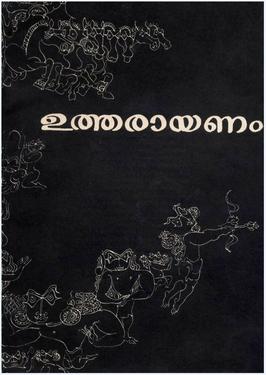
Uttarayanam is a 1975 Malayalam-language film directed by G. Aravindan and written by Thikkodiyan. Aravindan debuted with this film. The film, which exposes opportunism and hypocrisy set against the backdrop of the Independence struggle, is inspired by Aravindan's own cartoon series, titled Cheriya Lokavum Valiya Manushyarum, which was published in Mathrubhumi for several years.
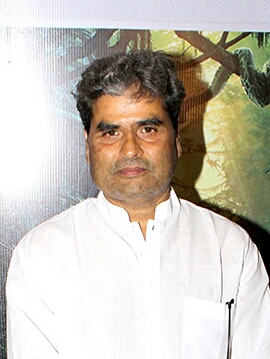
Vishal Bhardwaj is an Indian film director, screenwriter, producer, music composer and playback singer. He is known for his work in Hindi cinema, and is the recipient of eight National Film Awards and a Filmfare Award.
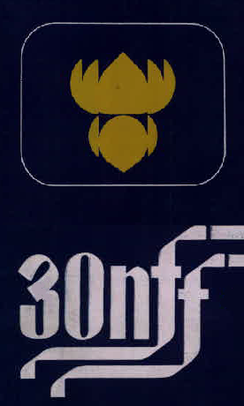
The 30th National Film Awards, presented by Directorate of Film Festivals, the organisation set up by Ministry of Information and Broadcasting, India to felicitate the best of Indian Cinema released in the year 1982. Ceremony took place in May 1983 and awards were given by then President of India, Giani Zail Singh.

Angaar (transl. Fire) is a 1992 Indian Hindi-language crime drama film directed by Shashilal K. Nair. The film stars Jackie Shroff, Dimple Kapadia in lead roles, along with Nana Patekar, Om Puri, Kader Khan, Kiran Kumar in supporting roles. The film was speculated to have been based on the life of Karim Lala.

Sachin Kundalkar or Sacin Kuṇḍalakar is an Indian film director and screenplay writer who mostly works in Marathi cinema. He is known for his directorial works of Nirop (2007) and Gandha (2009). He has also written for the theatre. He is recipient of two National Film Awards, as a director for Nirop and as a screenwriter for Gandha, the first Marathi film to win Best Screenplay award since the category's institution in 1967.
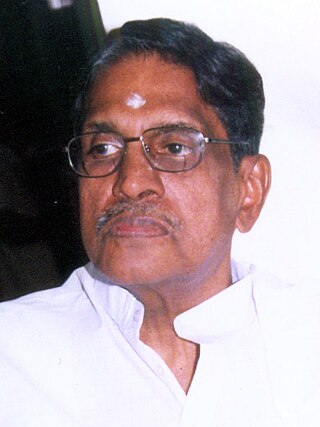
K. Ravindranathan Nair , also known as Achani Ravi or General Pictures Ravi, was an Indian film producer of Malayalam films, industrialist and philanthropist. He was known for a number of critically acclaimed films he produced, such as Kanchana Sita, Thampu, Kummatty, Esthappan, Pokkuveyil, Elippathayam, Manju, Mukhamukham, Anantaram and Vidheyan. Nair was credited with fostering the art film movement in Malayalam cinema during the period from the 1970s to the 1990s. A multiple recipient of National and State film awards, Nair was awarded the J. C. Daniel Award by the Government of Kerala, in 2008, for his contributions to Malayalam cinema.

Hari Nair is an Indian cinematographer known for his works in Malayalam cinema, Bengali cinema, English cinema, Hindi cinema. Hari graduated from the Film and Television Institute of India (FTII). He was born on 31st March 1965 at Ponnani. His father K.P. Rajgopalan Nair was the head of the department of Cinematography at the Film and Television Institute of India.
References
- ↑ ""I have no plans of selling remake rights of Angaar" – Shashilal Nair". Bollywood Hungama . 20 October 2011. Archived from the original on 24 September 2021. Retrieved 1 April 2024.
- ↑ "40th National Film Awards" (PDF). iffi.nic.in. Directorate of Film Festivals. pp. 54–55. Archived from the original (PDF) on 8 October 2015. Retrieved 24 December 2011.